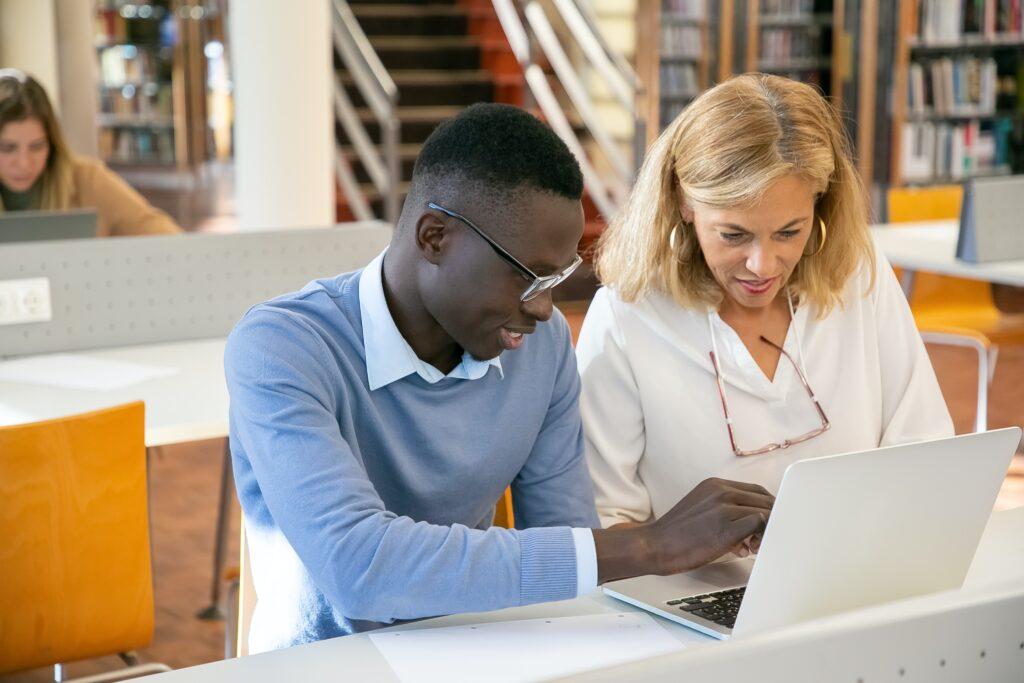This blog is a reflection on a recent episode of our podcast The Resilient Researcher in which we interviewed the attorney and human rights advocate Mary Lou Keller and the researcher philanthropist Lois Shaw, both older adult women who chose to go back to school and pursue advanced degrees over the age of 60. You can listen to that episode here on our website, or wherever you get your podcasts.
Ever thought about pursuing a degree later in life? Here are three key takeaways from our conversation with two outstanding ‘mature’ students.
Finding your true passion takes time.
In our society, professional success stories can be very linear. They typically involve a steady, upward trajectory, perhaps a longstanding career in a respected field with traditional milestones. This trajectory is championed and coveted. Meanwhile, alternate career paths, those that zig and zag, are rarefied or even sidelined. Passions that emerge later in life are trivialised as hobbies or ‘fun’ pursuits.
The truth is, life changes us. Our passions evolve over time, and finding something that peaks your interest takes time. Very few of us have life neatly mapped out from the start.
Rather than pressuring yourself to have it all figured out, set time aside to explore your options. Later in life, mature students might enjoy the freedom of financial independence or at least the security of an established career.
Maturity provides a golden opportunity to self-reflect and reassess how to dedicate your time and energy. You have the liberty and the self-awareness to pause and consider what you love and what you excel at, as well as things you don’t enjoy. Process of elimination becomes easier when you’ve lived a bit of life.
Remember, there is no deadline. There is no end of the road. Our personal journeys unfold at their own pace. Be patient with yourself. Trust the process. Feel free to experiment and evolve. As Mary Lou says, “I never, ever went to school knowing what I wanted to be…and so as I worked my way through, I identified things that I found interesting. But more importantly, I found things I didn’t want to do and started sort of shedding paths.”


Life will always get in the way. Resilience is key.
It happens to the best of us. You could be well on your way to achieving your dreams, and then suddenly life throws you an unexpected curveball. We all get thrown off course from time to time. As a mature student with an established lifestyle, perhaps a family or other commitments, this is all the more possible.
For our guest Lois, an unexpected diagnosis disrupted her studies and forced her to reassess her priorities. The experience, while immensely challenging, enriched her understanding of what it means to do research. And at the end of the day, health comes first. So it taught her how to take care of herself in the process.
Learning to bounce back in the face of adversity will ultimately strengthen your character and your research. Some helpful tips from Lois:
- Embrace a growth mindset. Challenges that come your way are opportunities to learn and grow. See failures and obstacles as stepping stones on the path, rather than an impenetrable barrier to success.
- Find an outlet to manage your stress. At the best of times, the stress of research can be overwhelming. Exercise agency where you can, and release what is out of your control. On days when it all just feels like too much, have a handy list of activities that help you release. It could be a long walk or a breathing exercise. Maybe it’s reading a good book—preferably fiction or something unrelated to your research!
- Be kind to yourself. Always. Treat yourself with the same compassion and empathy you would extend to a friend. Acknowledge your efforts, celebrate progress, and practice self-forgiveness.
Mary Lou recalls, “At any given time, I had to try and give myself some grace. I had to tell myself, it’s alright if my focus shifts. It’s alright if I scale back on my plans. It’s ok if my expectations aren’t fully realised in a way that I thought they would be. That doesn’t make this year a failure. That doesn’t make this endeavour a failure, it’s just different.”
You are never too old to learn.
Age should never be a barrier to learning and growth. In fact, that kind of fixed mindset can hold us back from reaching our full potential. There’s a huge world out there full of opportunities for all ages. And lifelong learning not only keeps our minds sharp, but opens doors to new adventures, challenges, and personal fulfillment.
So it’s never too late to start writing that book, pick up a new instrument or learn a new language. As Lois says, “It’s never too late to go back to school, it’s never too late to learn something new. There’s so much to live out there, there’s so much to learn, know and grow… Why stop? Until you absolutely have to.”
Lois goes on to share one of her favourite quotes by the missionary and early anthropologist William Carey—I’m not afraid of failure, I’m afraid of succeeding at things that don’t matter.
And a bonus takeaway… When you’re starting something new, don’t be afraid to throw yourself in head first. Self-doubt is natural and completely human. But it’s important to question the origins of anxiety. Is it scary because it’s wrong? Or is it scary because you’ve never done it before? There’s a first time for everything!
If you’re considering a return to research as a mature student, check out our episode with Mary Lou Keller and Lois Shaw. Their experience provided us with much inspiration and insight, and we hope it does the same for you!
Tags
About the author

